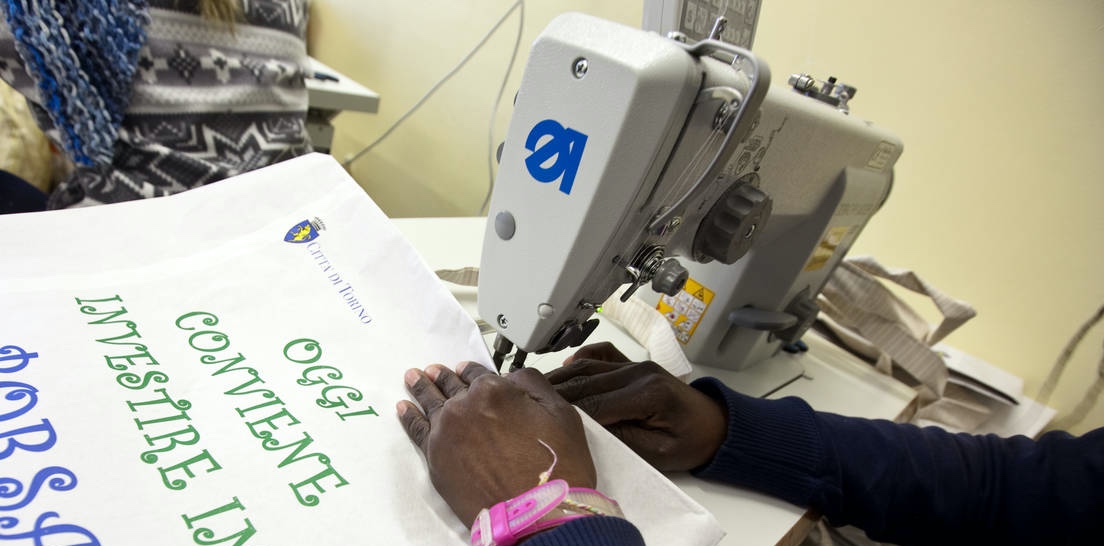
Dec
2020
L.E.I: Good practices for strengthening the capacity of women detainees
L.E.I. (Lavoro.Emancipazione.Inclusione), which stands for work, empowerment and inclusion, is a project promoted and supported by the Compagnia di San Paolo Foundation in collaboration with the Lorusso and Cutugno Prison in Turin, Ufficio Pio, the Essereumani Association, the social cooperatives Extraliberi, Impatto Zero and Patchanka, the Casa di Carità Arti e Mestieri Foundation, the Savings Museum and PerMicro of Turin as well as the Emanuela Zancan Foundation. It is aimed at improving the living conditions of women detainees by offering them opportunities for social and work reintegration both inside and outside prison. It developed from a challenge: how to bring together skills and experiences, while respecting institutional roles and mandates, in order to help the women
give meaning to their current detention while also providing them with springboard for a future life-project.
A central role in accompanying the women during the project is played by the control room, where the prison (both the treatment and security areas) and all project partners meet to discuss the paths taken by the women, their outcomes and any problems that may have emerged.
This implies a “customisation” of each pathway, where the observations relating to each woman are contextualised in a holistic way, taking into account their unique personal situation. Basically, LEI develops personalised pathways of reflection and analysis. These are not just a sum of different actions but the result of a comprehensive management of the women’s needs and capabilities in order to empower them to take their future into their own hands. Specifically, the approach developed and implemented by the project hinges on two areas of in-depth analysis: a personalised competence assessment and periodic progress monitoring sessions.
Ample time and space are dedicated in each woman’s personal project patchway to the discovery, and/or rediscovery, of her talents and their personal circumstances. Self-esteem and talents don’t often feature in the stories women tell about themselves, as these are mostly characterised by situations of subordination and a lack of opportunities for self-determination. It is very important to offer women space to reflect on and assess their own competences; to gauge their own achievements and limitations. This helps them realise what value the learning journey they are embarking on will provide to their future life projects. A competences assessment is drawn up for each woman and it is periodically reviewed in the control room on the basis of the progress she is making. In parallel to this, project operators constantly monitor the progress made by the women, noting all changes, no matter how small, that show that they are strengthening their professional and relational skills. Quarterly evaluation meetings between project operators and staff from the prison administration (both from the treatment and security areas) where observations are openly shared, enable all to get a holistic picture of each woman’s situation. This allows for all to compare the progress made by each woman and jointly discuss any problems they might be having in order to agree common strategies for overcoming these.
The results achieved by the L.E.I. project, now in its fourth year, highlight the changes and progress made by the women involved, and the development of different paths for their socio-occupational reintegration. The recognition and the enhancement of the skills of women detainees, moreover, are an important starting point for using these skills and competences to the advantage of other women detainees, the broader prison context and the “community” in general, from a generative welfare perspective.


